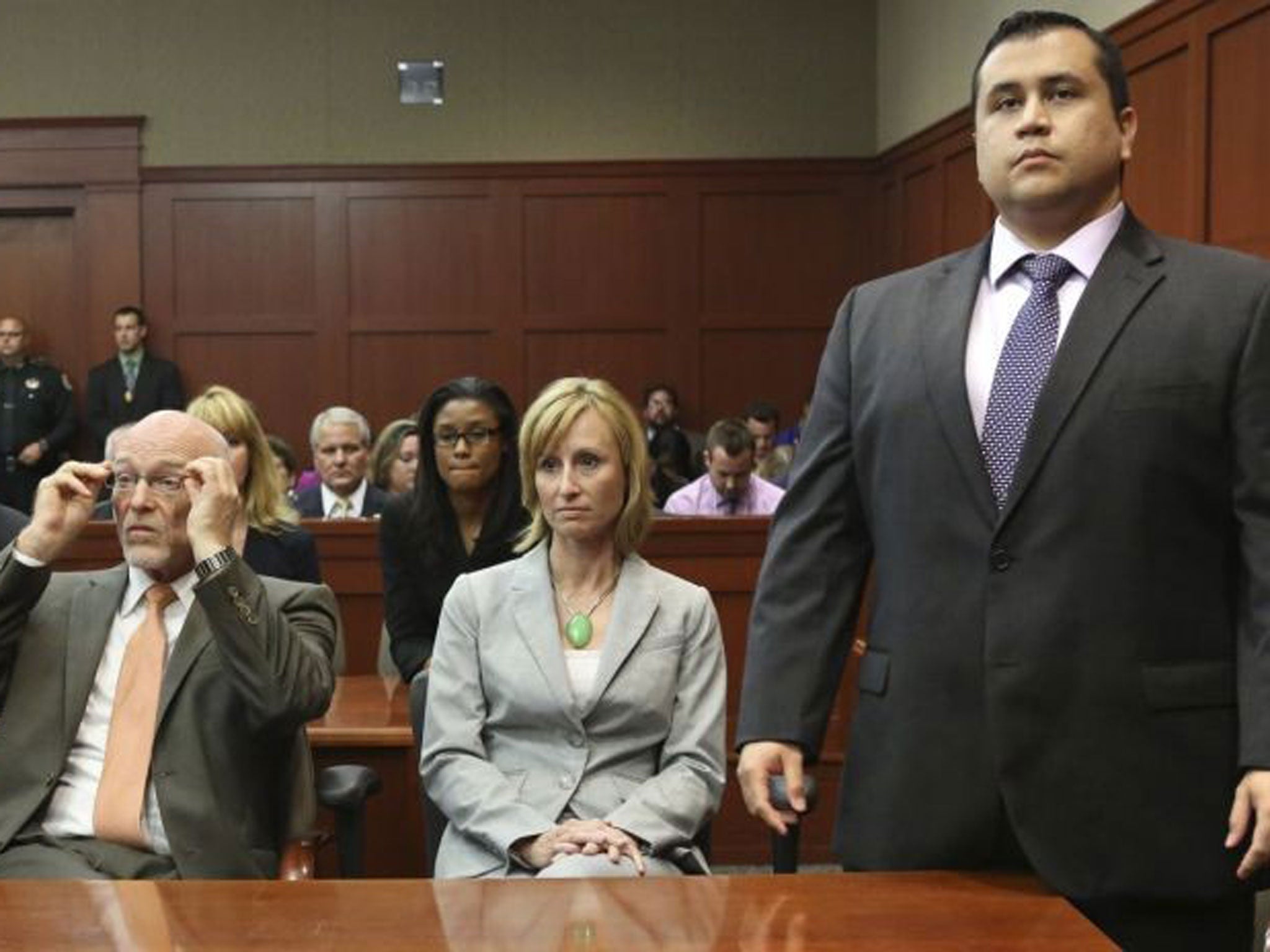George Zimmerman found not guilty of murdering unarmed black teenager Trayvon Martin
Zimmerman, then 28, shot and killed the 17-year-old Martin on the evening of 26 February

George Zimmerman, the neighbourhood watch volunteer accused of murdering Trayvon Martin, an unarmed black teenager, in February 2012, has been cleared of all charges by a Florida jury.
Police had asked the residents of Sanford, the town where the killing and subsequent trial took place, to keep the peace after hearing the verdict in a case that shocked and then gripped the US, fuelling the nation's ancient debates over race and firearms.
Zimmerman, then 28, shot and killed the 17-year-old Martin on the evening of 26 February last year, at The Retreat, a gated community on the town's outskirts. The jury of six women heard testimony from more than 50 witnesses during the five-week televised trial; they returned their verdict on Saturday night, following two days and almost 16 hours of deliberations.
Zimmerman had been charged with second-degree murder, though the jurors were also given the option of convicting him on the lesser charge of manslaughter. They chose neither. Zimmerman appeared emotionless as the not guilty verdict was read, but smiled as the jury left the courtroom and Judge Debra Nelson informed him that he was free to go. The verdict's implication is that Zimmerman acted in self-defence, and was justified under Florida law in using deadly force "to prevent imminent death or great bodily harm" to himself.
On the night in question, Zimmerman, a resident of The Retreat, was driving through the neighbourhood when he spotted Martin, walking in a grey hoodie. The teenager had just bought a soft drink and a packet of Skittles at a local convenience store, and was returning to the nearby house where he was staying with friends. Zimmerman called 911, claiming Martin seemed suspicious. The police dispatcher told him to wait for the authorities to arrive.
What happened next may never be entirely clear. Prosecutors said Zimmerman ignored the dispatcher's advice and left his car to pursue Martin on foot. Zimmerman's lawyers, however, claimed Martin confronted and attacked Zimmerman, knocking him to the ground and striking his head repeatedly on the concrete pavement. However it began, the altercation ended with Zimmerman firing a single shot from his 9mm handgun, hitting Martin in the heart and killing him.
The police arrived shortly afterwards, yet declined to charge Zimmerman due to the state's controversial "stand-your-ground" law, which allows anyone who considers themselves in imminent danger to take whatever action they deem appropriate to defend their person. Protests erupted in Miami, New York and several other US cities, with civil rights leaders arguing that Zimmerman, who is Hispanic, had targeted Martin because he was black. A month after the shooting, President Barack Obama addressed the issue, saying, "If I had a son, he'd look like Trayvon."
Finally, on 11 April 2012, Florida State Attorney Angela Corey charged Zimmerman with murder. During his trial, the jurors were asked to decide whether the defendant was a dangerous vigilante, or a concerned citizen backed into a corner. They were not helped by the sharply contradictory testimony of eyewitnesses to the incident: one, Jonathan Good, told the court he saw Martin on top of Zimmerman as the two fought; another, Selma Mora, said Zimmerman had the upper hand before the fatal gunshot rang out. Even the screams heard on a 911 call, recorded in the moments before Martin's death, remained contentious: Zimmerman's mother and Martin's mother both claimed the cries belonged to their respective sons.
Prosecutors did their best to convince the court that Zimmerman, angered by a series of burglaries in the community, had concluded that Martin was a criminal and taken the law into his own hands. Prosecutor Bernie de la Rionda insisted, "A teenager is dead, and he's dead through no fault of his own. He's dead because another man made an assumption." Yet the evidence did not prove sufficient to secure a conviction. Zimmerman's defence lawyer Mark O'Mara told the jury they should not "fill in gaps" in the evidence in order to find his client guilty. Martin's death, he said "is a tragedy, truly, but you can't allow sympathy to feed into it."
Late on Saturday night, O'Mara told reporters he was "ecstatic" about the not guilty verdict. His opinion was not shared by civil rights leaders, such as Roslyn M Brock, the chairman of the National Association for the Advancement of Coloured People (NAACP), who called on the US Department of Justice to investigate the alleged civil rights violations committed against Martin. "Today, justice failed Trayvon Martin and his family," Brock said in a statement. Martin's parents were not in the courtroom when the verdict was read, but his father Tracy Martin later tweeted, "Even though I am broken-hearted my faith is unshattered. I will always love my baby Tray".
Join our commenting forum
Join thought-provoking conversations, follow other Independent readers and see their replies
Comments